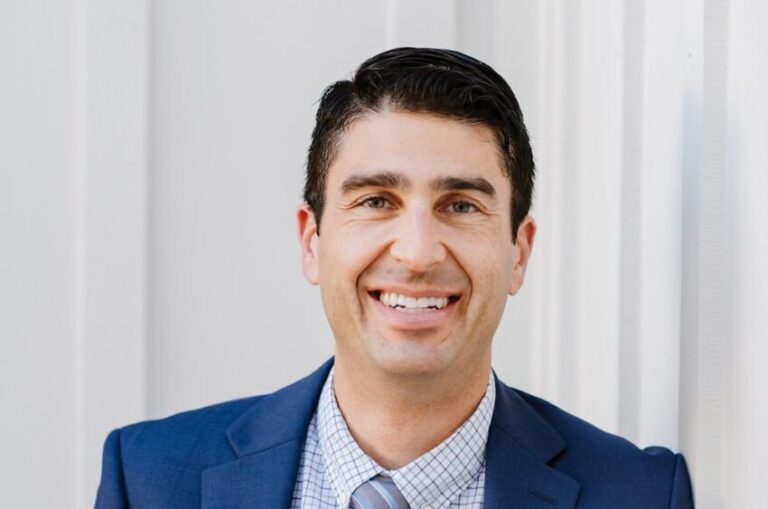[ad_1]
James Novello is professional life and resilience coach, and a former paramedic firefighter with the San Francisco Fire Department (SFFD).
He served for many years with the SFFD, responding to more than 25,000 emergency incidents, and earned a myriad of specialized certifications during the course of his duties. While working with the SFFD, James never had a doubt in his mind that being a paramedic firefighter was his true calling, and would be his career until retirement age.
However, after suffering a series of significant, on-the-job injuries, James came to the conclusion that he would not be able to finish his career as a full-time first responder—his injuries were simply too extensive and debilitating. He could not move around as swiftly and easily as he once did. And the pain was becoming increasingly alarming.
While assigned to light duty and filling a peer support role within the department, James Novello had an epiphany regarding his career path: He had all the requisite skills and experience to become a life and resilience coach, and he loved helping those in need. After considering it for some time and discussing the matter with friends and loved ones, he made the decision to pursue it as a vocation, and he hasn’t looked back since. James Novello lives in San Francisco, California with his family in the Excelsior District.
What do you currently do at your company?
I’m a life and resilience coach. I counsel clients on how best to address whatever maladies, injuries, or mental and emotional problems they may be grappling with. This can take the form of physical training, diet planning, career advice, or simply helping them talk through personal issues.
What was the inspiration behind your business?
I had sustained a number of on-the-job injuries, and as a consequence, was assigned to light duty at my job with the San Francisco Fire Department. One of the functions I served in light duty was acting as a peer support counselor. In that role, I not only attended some very illuminating and informative workshops and seminars, but I also acted as a mentor and counselor for some of my fellow paramedic first responders. It was that experience that set me down the path to life and resilience coaching.
What defines your way of doing business?
Mindfulness is a big part of my way of doing business. At its core, mindfulness is the practice of accepting thoughts and feelings as they occur rather than trying to change the way the mind is responding. I find it to be an incredibly useful tool, both for myself and for my clients.
What keys to being productive can you share?
I think staying focused on both short-term and long-term goals is the single biggest key to productivity. It’s a tricky thing in today’s world to not be distracted by news, gossip, games, or other diversions—there are literally entire billion dollar industries set up to distract as many people as possible for as much time as possible (internet algorithms for example). Aside from that, it’s easy for people to get caught up inside their own head overanalyzing personal situations, as well. Brushing all that away and maintaining focus on what is truly important is a great challenge, but I believe it is the only way to actually accomplish anything of worth.
Tell us one long-term goal in your career.
That’s simple. I just want to use my skills and experience to help as many people get through rough patches in their lives as I can.
What would you tell your younger self?
I would tell my younger self to enjoy your body while it’s limber and in top condition. You never know when some injuries might crop up that compromise your ability to move freely and without pain. I would also say to remain grateful and value family over money. Choosing a career easy on the body but intellectually challenging is also a thing I’ve learned to cherish and would pass on to anyone.
What’s the most valuable lesson you’ve learned through the course of your career?
Don’t procrastinate on making improvements to your life. Once you’ve figured out what you want, start working to implement it right away. I’m speaking primarily about career goals, but this advice also applies to personal achievements and positive changes of all sorts. I’ve seen this mode of thinking work wonders for many of my clients, especially the ones suffering from trauma and hardships. It really helps them to work through whatever problems they may be facing. In fact, I’ll add my own testimonial. During the roughest period of my life, it was taking the bull by the horns and actually taking the steps to implement my goals that helped to pull me out of my own problems. Anyhow, whatever you feel strongly about, start working toward it immediately—even if it just takes the form of small steps. Over time, the accomplishment of those small steps will add up to real and meaningful progress toward your ultimate goal.
What advice would you give to others aspiring to succeed in your field?
In the field of life and resilience coaching, listening to your clients is paramount. They will tell you everything you need to know in order to help them, whether it be through conversation, subtext, or sometimes even body language—but you have to pick up on it. I cannot underscore how important both listening and logical reasoning are in order to succeed in this profession.
What are some of your favorite things to do outside of work?
Primarily, I love hanging out and spending quality time with my family. I make sure to schedule regular trips with them, as I believe it is an excellent way to maintain happiness in your life. Low impact endurance sports are also key activities I use to maintain my health.
What are a few influential books that you’ve read that you’d recommend?
I’ll give you two titles. First, The Power of a Positive Team by Jon Gordon. That book outlines the importance of having a positive mindset in the workplace, and shows how teams with positive attitudes increase rates of success. Second, I recommend Dopamine Nation by Dr. Anna Lembke. That one is more of a technically-skewed book, as it breaks down several studies and clearly explains the relationship our actions have on the body’s dopamine reward pathways. Dr. Lembke details scientific studies in neuroscience that conclusively prove why certain activities actually result in happiness while certain other unhealthy activities do not.
[ad_2]
Source link























0 Comments